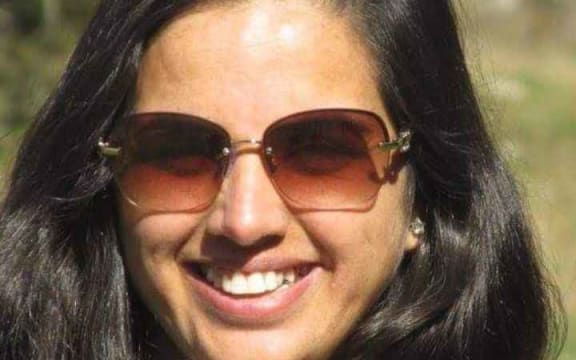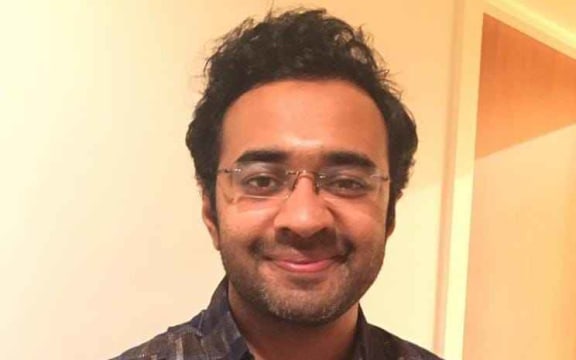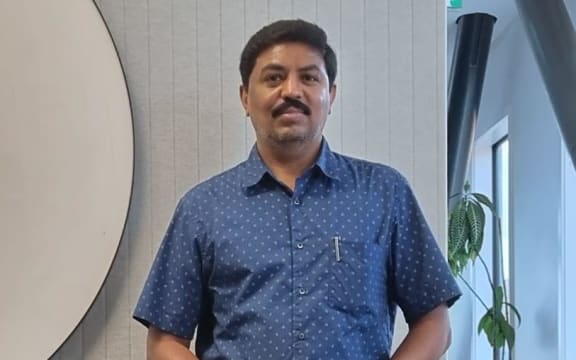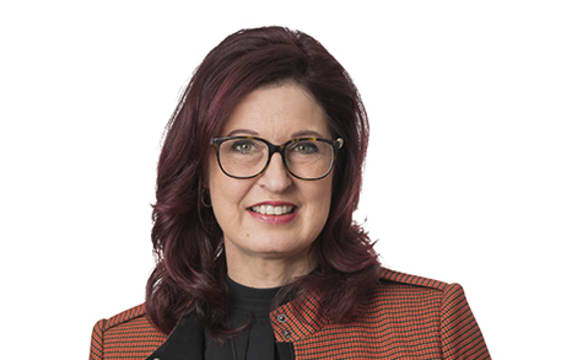Skilled Migrant But Without Job? Join The Club

The relative strength of New Zealand's job market is of little consolation to highly skilled migrants who are struggling to secure roles that match their qualifications and experience.
Often passed over for being "overqualified" or "lacking New Zealand experience", such migrants are forced to take on entry-level roles in casual positions to cover day-to-day living costs.
Anju Sangwan, a qualified geneticist with a doctorate in genetics and biotechnology, relocated from the northern Indian state of Haryana to New Zealand in 2010.
But upon arriving in New Zealand, Sangwan encountered an unexpected hurdle - her doctorate was evaluated as a level nine qualification, lower than the usual level 10 for PhDs.

Anju Sangwan holds a doctorate in genetics and biotechnology. Photo: Supplied
Undeterred by the initial setback, Sangwan embarked on a journey to align her qualifications with New Zealand standards.
She completed a level eight course in infection prevention and management control studies to secure a position as a technical assistant and assistant lecturer at a local university.
But after experiencing firsthand the bleak reality of academia in New Zealand, Sangwan turned to nursing.
"In the first year after completing my nursing studies, I must have applied to at least 18 hospitals for a job," Sangwan recalls.
Despite securing a few interviews, she was told that she lacked New Zealand experience.
"How do you gain New Zealand experience without being given a job?" she asks.
Sangwan eventually landed a nursing position after the 2011 Christchurch earthquake, albeit in a casual role.
Maretha Smit, chief executive of Diversity Works New Zealand, says one of the biggest barriers skilled migrants encounter when seeking employment in New Zealand is bias.
"Recruiters can allow preconceived ideas or stereotypes to influence hiring decisions, potentially hindering the fair assessment of a migrant candidates' qualifications and capabilities," Smit says.
Limited employment options
Jayan Krishnan, originally from the southern Indian state of Kerala, relocated to New Zealand in 2017 with a PhD scholarship from Auckland University of Technology and has encountered similar issues finding work that matched his qualifications.
Krishnan arrived in New Zealand with a master's degree in international broadcast journalism from the United Kingdom and experience as a print journalist for the Times of India. He had also worked as an assistant professor in Amrita Vishwa Vidyapeetham University in India.

Jayan Krishnan relocated to New Zealand in 2017 with a PhD scholarship from Auckland University of Technology. Photo: Supplied
He applied for several academic positions at universities in New Zealand, particularly in their media, film, and communication departments.
However, he observed a disturbing trend: all lecturers and tutors were pakeha in the universities he was applying for.
Krishnan expressed some surprise at the limited number of lecture positions that are available in New Zealand, noting that other countries typically offered more opportunities.
He has also applied for government positions and advisory roles, among others, but has yet to secure a permanent contract.
"There is a vague generalisation that doctorate candidates are overqualified," he says. "I don't want to lie on my CV - that's not me!"
Krishnan has applied for more than 50 jobs since January 2023.
"My laptop is filled with CVs and cover letters," he says. "I have been shortlisted for a few interviews but have never made the cut."
Despite completing his PhD in January 2023, Krishnan continues to work as a customer service representative on a casual contract.
Originally signed on a three-month contract from February to April, his tenure was later extended to September and further extended until December. He is waiting anxiously for the company to decide whether to offer him a permanent position.
Smit says it can be difficult for migrants to convince potential employers that their overseas experience counts for anything in New Zealand.
"New Zealand employers often fail to recognise the qualifications and experience [applicants] have gained overseas," Smit says.
"Barriers to gaining professional registration in sectors such as health, education and finance can also make it difficult for migrants to pick up their chosen career when they move to New Zealand."
Local experience deficit
Saravanan Dhatchana Moorthy started a 22-year career focusing on health and safety in India, eventually earning a master's degree in mechanical engineering in 2001.
After relocating to Singapore in 2008, he pursued a second master's degree in logistics in 2010.

Saravanan Dhatchana Moorthy holds two master's degrees in mechanical engineering and logistics. Photo: Supplied
Moorthy has recently moved to New Zealand. He certainly doesn't lack experience, having served as a health and safety lead for multinational oil and gas company Shell Eastern Petroleum for three and a half years.
Despite his expertise, he has struggled to secure a job in New Zealand over the past six months.
"The recurring responses I got were that of being deemed 'over-qualified', 'lacking relevant and local experience' and an [employers'] inability to provide training for me," he says.
Sangwan, Krishnan and Moorthy's experience suggests some employers in New Zealand are reluctant to give qualified migrants a chance to prove their worth.
Moorthy believes some New Zealand employers prioritise candidates they feel more comfortable with instead of focusing on their knowledge and experience.
Carol Brown, CEO of Diversitas, says migrants with experience and qualifications face many barriers to employment.
"Skilled migrants in New Zealand do face hurdles such as bias in hiring, requirements for local work experience, cultural differences, unrecognised overseas qualifications and a lack of professional networks, hindering their employment opportunities," she says.
Recruitment ambiguity
Krishnan has issues with employers who use automated keyword-based selection processes for shortlisting applications for interviews, arguing that such processes lack value.

Carol Brown, CEO of Diversitas. Photo: Supplied
Sangwan also wants New Zealand employers to be fair, transparent and inclusive in the recruitment process, calling on businesses to be respectful of a migrant's background when considering them for a position.
She says employers should be mindful of the sacrifices an applicant has made to obtain a PhD when reviewing candidates.
Sangwan also calls on the government to conduct comprehensive surveys and assemble focus groups to understand the contributions of highly educated immigrants.
She suggests drawing up bridging courses for new migrants to help them understand local standards.
Moorthy, who is currently pursuing a doctoral degree, suggests implementing a national competency framework to help employers recognise global skills, emphasising specific qualifications such as health and safety licenses.
He underscores the importance of creating policies for a more equitable environment, particularly in fields requiring advanced degrees.
Sangwan, Krishnan and Moorthy all say there is a need to introduce institutional mentorship programs and resources to aid career progression.
Such suggestions reflect the emotional toll and personal setback that qualified migrants often experience in their job search in New Zealand.
Brown suggests there is a lack of correlation between experience, competencies and performance in recruitment practices.

Maretha Smit is chief executive of Diversity Works New Zealand. Photo: Supplied
Smit agrees.
"One simple step is to ensure that when you are in the process of job design or beginning to advertise a role, you are not including unnecessary requirements that might discourage migrants from applying or prevent their application from being successful," Smit says.
"Check your assumptions - is this actually a role where excellent written and verbal English skills are required? Is it essential that the successful applicant has worked in New Zealand or will the skills and experience they have obtained overseas be relevant?" she says.
"Migrants will have an easier time getting a foothold in the New Zealand workforce if employers stop overlooking and undervaluing overseas experience."
Brown calls for businesses to alter their recruitment mindset, encouraging them to move beyond rigid systems to embrace diversity.
She says current recruitment system are often outdated and calls for organisations to embrace equity, recruitment reviews and the introduction of a co-design approach to foster inclusivity and tap into the diverse talent that skilled migrants possess.
* Malini Yugendran is a communications scholar and freelance contributor who focuses on issues that are relevant to the South Asian and minority communities.
The relative strength of New Zealand's job market is of little consolation to highly skilled migrants who are struggling to secure roles that match their qualifications and experience.
Often passed over for being "overqualified" or "lacking New Zealand experience", such migrants are forced to take...
The relative strength of New Zealand's job market is of little consolation to highly skilled migrants who are struggling to secure roles that match their qualifications and experience.
Often passed over for being "overqualified" or "lacking New Zealand experience", such migrants are forced to take on entry-level roles in casual positions to cover day-to-day living costs.
Anju Sangwan, a qualified geneticist with a doctorate in genetics and biotechnology, relocated from the northern Indian state of Haryana to New Zealand in 2010.
But upon arriving in New Zealand, Sangwan encountered an unexpected hurdle - her doctorate was evaluated as a level nine qualification, lower than the usual level 10 for PhDs.

Anju Sangwan holds a doctorate in genetics and biotechnology. Photo: Supplied
Undeterred by the initial setback, Sangwan embarked on a journey to align her qualifications with New Zealand standards.
She completed a level eight course in infection prevention and management control studies to secure a position as a technical assistant and assistant lecturer at a local university.
But after experiencing firsthand the bleak reality of academia in New Zealand, Sangwan turned to nursing.
"In the first year after completing my nursing studies, I must have applied to at least 18 hospitals for a job," Sangwan recalls.
Despite securing a few interviews, she was told that she lacked New Zealand experience.
"How do you gain New Zealand experience without being given a job?" she asks.
Sangwan eventually landed a nursing position after the 2011 Christchurch earthquake, albeit in a casual role.
Maretha Smit, chief executive of Diversity Works New Zealand, says one of the biggest barriers skilled migrants encounter when seeking employment in New Zealand is bias.
"Recruiters can allow preconceived ideas or stereotypes to influence hiring decisions, potentially hindering the fair assessment of a migrant candidates' qualifications and capabilities," Smit says.
Limited employment options
Jayan Krishnan, originally from the southern Indian state of Kerala, relocated to New Zealand in 2017 with a PhD scholarship from Auckland University of Technology and has encountered similar issues finding work that matched his qualifications.
Krishnan arrived in New Zealand with a master's degree in international broadcast journalism from the United Kingdom and experience as a print journalist for the Times of India. He had also worked as an assistant professor in Amrita Vishwa Vidyapeetham University in India.

Jayan Krishnan relocated to New Zealand in 2017 with a PhD scholarship from Auckland University of Technology. Photo: Supplied
He applied for several academic positions at universities in New Zealand, particularly in their media, film, and communication departments.
However, he observed a disturbing trend: all lecturers and tutors were pakeha in the universities he was applying for.
Krishnan expressed some surprise at the limited number of lecture positions that are available in New Zealand, noting that other countries typically offered more opportunities.
He has also applied for government positions and advisory roles, among others, but has yet to secure a permanent contract.
"There is a vague generalisation that doctorate candidates are overqualified," he says. "I don't want to lie on my CV - that's not me!"
Krishnan has applied for more than 50 jobs since January 2023.
"My laptop is filled with CVs and cover letters," he says. "I have been shortlisted for a few interviews but have never made the cut."
Despite completing his PhD in January 2023, Krishnan continues to work as a customer service representative on a casual contract.
Originally signed on a three-month contract from February to April, his tenure was later extended to September and further extended until December. He is waiting anxiously for the company to decide whether to offer him a permanent position.
Smit says it can be difficult for migrants to convince potential employers that their overseas experience counts for anything in New Zealand.
"New Zealand employers often fail to recognise the qualifications and experience [applicants] have gained overseas," Smit says.
"Barriers to gaining professional registration in sectors such as health, education and finance can also make it difficult for migrants to pick up their chosen career when they move to New Zealand."
Local experience deficit
Saravanan Dhatchana Moorthy started a 22-year career focusing on health and safety in India, eventually earning a master's degree in mechanical engineering in 2001.
After relocating to Singapore in 2008, he pursued a second master's degree in logistics in 2010.

Saravanan Dhatchana Moorthy holds two master's degrees in mechanical engineering and logistics. Photo: Supplied
Moorthy has recently moved to New Zealand. He certainly doesn't lack experience, having served as a health and safety lead for multinational oil and gas company Shell Eastern Petroleum for three and a half years.
Despite his expertise, he has struggled to secure a job in New Zealand over the past six months.
"The recurring responses I got were that of being deemed 'over-qualified', 'lacking relevant and local experience' and an [employers'] inability to provide training for me," he says.
Sangwan, Krishnan and Moorthy's experience suggests some employers in New Zealand are reluctant to give qualified migrants a chance to prove their worth.
Moorthy believes some New Zealand employers prioritise candidates they feel more comfortable with instead of focusing on their knowledge and experience.
Carol Brown, CEO of Diversitas, says migrants with experience and qualifications face many barriers to employment.
"Skilled migrants in New Zealand do face hurdles such as bias in hiring, requirements for local work experience, cultural differences, unrecognised overseas qualifications and a lack of professional networks, hindering their employment opportunities," she says.
Recruitment ambiguity
Krishnan has issues with employers who use automated keyword-based selection processes for shortlisting applications for interviews, arguing that such processes lack value.

Carol Brown, CEO of Diversitas. Photo: Supplied
Sangwan also wants New Zealand employers to be fair, transparent and inclusive in the recruitment process, calling on businesses to be respectful of a migrant's background when considering them for a position.
She says employers should be mindful of the sacrifices an applicant has made to obtain a PhD when reviewing candidates.
Sangwan also calls on the government to conduct comprehensive surveys and assemble focus groups to understand the contributions of highly educated immigrants.
She suggests drawing up bridging courses for new migrants to help them understand local standards.
Moorthy, who is currently pursuing a doctoral degree, suggests implementing a national competency framework to help employers recognise global skills, emphasising specific qualifications such as health and safety licenses.
He underscores the importance of creating policies for a more equitable environment, particularly in fields requiring advanced degrees.
Sangwan, Krishnan and Moorthy all say there is a need to introduce institutional mentorship programs and resources to aid career progression.
Such suggestions reflect the emotional toll and personal setback that qualified migrants often experience in their job search in New Zealand.
Brown suggests there is a lack of correlation between experience, competencies and performance in recruitment practices.

Maretha Smit is chief executive of Diversity Works New Zealand. Photo: Supplied
Smit agrees.
"One simple step is to ensure that when you are in the process of job design or beginning to advertise a role, you are not including unnecessary requirements that might discourage migrants from applying or prevent their application from being successful," Smit says.
"Check your assumptions - is this actually a role where excellent written and verbal English skills are required? Is it essential that the successful applicant has worked in New Zealand or will the skills and experience they have obtained overseas be relevant?" she says.
"Migrants will have an easier time getting a foothold in the New Zealand workforce if employers stop overlooking and undervaluing overseas experience."
Brown calls for businesses to alter their recruitment mindset, encouraging them to move beyond rigid systems to embrace diversity.
She says current recruitment system are often outdated and calls for organisations to embrace equity, recruitment reviews and the introduction of a co-design approach to foster inclusivity and tap into the diverse talent that skilled migrants possess.
* Malini Yugendran is a communications scholar and freelance contributor who focuses on issues that are relevant to the South Asian and minority communities.









Leave a Comment